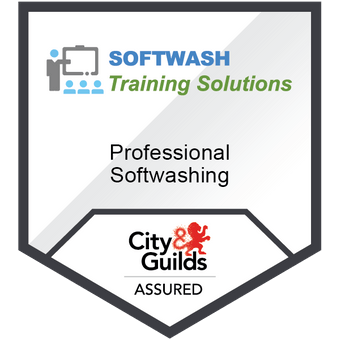When it comes to cleaning windows, it seems like a straightforward task. Yet, anyone who's battled streaks, smudges, and water spots knows there's more to it than meets the eye. The culprits behind those frustrating marks are the minerals and impurities found in ordinary tap water. Truclean Plus, your trusted Manchester window cleaning experts, harnesses the power of pure water window cleaning to deliver results that traditional methods simply can't achieve.
Understanding pure water window cleaning
Pure water window cleaning is an innovative technique that eliminates the need for soaps and detergents entirely. The secret lies in water that has been meticulously purified to remove all dissolved solids, creating a powerful cleaning agent in itself. This pure water, devoid of impurities, behaves like a dirt and grime magnet, leaving your windows in pristine condition.
To apply this pure water, our technicians use specialised telescopic, extendable brushes. These brushes have soft bristles designed to gently agitate the window surface and break down dirt. At the same time, the brush head delivers a continuous flow of pure water, actively dissolving stubborn grime and rinsing away any residue.
Our custom vans are equipped to store the pure water ready for use, we are entirely self sufficient on site. Because pure water is such an effective cleaning agent on its own, there is absolutely no need to use any detergents or other cleaning chemicals, making the process completely eco-friendly.
The science behind pure water
The process of making pure water, particularly for uses such as pure water window cleaning, is a detailed and scientific one, starting with ordinary tap water and transforming it into a powerful cleaning agent. This transformation involves several stages, each designed to remove different types of impurities and minerals from the water.
Initially, the tap water undergoes filtration to eliminate any physical impurities or sediment. This is typically done using standard water filters, which can catch larger particles and contaminants present in the water. This step ensures that the water is clear of any large, physical substances that might hinder the subsequent purification processes.
After filtration, the water is processed through a reverse osmosis (RO) system. In this critical stage, the water is forced under pressure through a semipermeable membrane. This membrane acts as a barrier to most dissolved impurities, such as salts, bacteria and certain chemicals. While reverse osmosis significantly reduces the total dissolved solids (TDS) in the water, it does not entirely remove them.
The next crucial step is deionisation (DI). During deionisation, the water passes through resin beads contained within a DI tank. These resin beads are specially charged - some carry positive charges (cation) and others carry negative charges (anion). As the water flows through these beads, the oppositely charged ions present in the water are attracted to and held by these beads. For example, positively charged ions like calcium and magnesium are attracted to the cation resin beads, while negatively charged ions like chloride and sulphate are attracted to the anion resin beads.
This deionisation process effectively removes all remaining ions from the water, resulting in what is known as 'deionised water'. This water is essentially pure, devoid of any minerals, ions, or other impurities. To ensure the purity of the water, it is often tested with a TDS meter, which measures the total dissolved solids. The goal is to achieve water with a very low TDS reading, indicated in parts per million (ppm). The lower the TDS, the purer the water, making it more effective for cleaning applications.
Pure water made through this process is particularly suited for cleaning because of its high affinity for dirt and impurities. With no dissolved minerals or substances of its own, pure water naturally absorbs dirt, chemicals and minerals from surfaces, such as window glass, without leaving any streaks or deposits. This makes it an excellent, eco-friendly option for window cleaning and other similar applications.
Benefits of pure water window cleaning
Pure water window cleaning brings a multitude of advantages, making it an increasingly popular choice for both residential and commercial properties. The benefits of this cleaning method are significant and varied, providing not just cleaner windows but also contributing to a safer and more sustainable cleaning practice.
Streak-free cleaning - one of the most notable advantages of pure water window cleaning is its ability to deliver a streak-free finish. Since deionised water contains no minerals or impurities, it leaves no residue on the glass when it dries. This results in crystal-clear windows without the streaks or spots often left behind by traditional cleaning methods that use soaps or detergents.
Longer lasting results - the absence of soap residue also means that windows remain clean for a longer period after a pure water cleaning. Traditional cleaning agents can leave behind a thin film that can quickly attract dust and dirt. In contrast, the purity of the water used in this method ensures that the windows remain spotless for longer, reducing the frequency of needed cleanings.
Environmentally friendly - pure water window cleaning is an environmentally conscious choice. It eliminates the need for chemical cleaning agents, which can be harmful to the environment. This is particularly important in urban and residential areas, where chemical runoff can be a concern. The use of pure water means that the process is completely eco-friendly, with no risk of harmful substances entering the soil or water systems.
Safe and efficient - the safety and efficiency of pure water window cleaning cannot be overstated. This method typically uses water-fed pole systems, allowing cleaners to reach high windows from the ground. This greatly reduces the risks associated with ladder use, such as falls or injuries. Additionally, these extendable poles make it possible to clean hard-to-reach windows more efficiently, ensuring a thorough clean without compromising safety.
Reduced wear and tear on windows - chemical cleaners can sometimes be harsh on window surfaces, especially over time. Pure water, being gentle and chemical-free, is kind to the glass and framing materials, reducing wear and tear. This can extend the life of the windows, saving homeowners and businesses on future repair or replacement costs.
Enhanced aesthetic appeal - clean windows have a significant impact on the aesthetic appeal of a building. With the effective cleaning provided by the pure water method, windows become more than just functional elements; they enhance the overall appearance of the property.
Conclusion
Pure water window cleaning is the undisputed champion for achieving pristine windows. If you live in Manchester and want your windows to gleam with unparalleled clarity, contact us today! Our advanced pure water technology and expert team will transform your windows,
click here for more information about us and to get a free quote.
 3 min
3 min  3 min
3 min 

